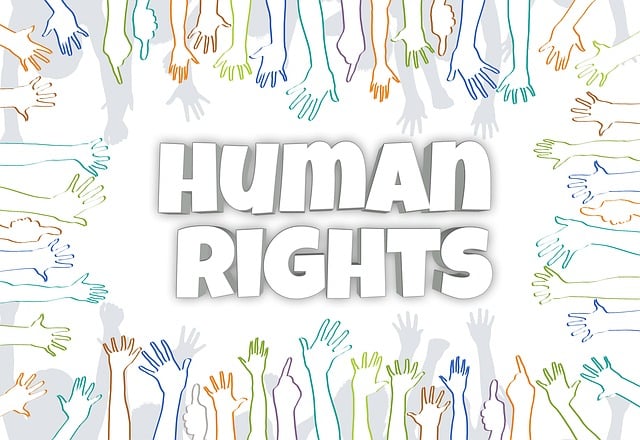Recent criminal law reforms aim for justice, fairness, and equal protection, shifting towards restorative justice and technological advancements. Understanding legal procedures is crucial for all stakeholders, with specific protocols from arrest to sentencing safeguarding rights and reaching fair verdicts. Fundamental accused rights, guaranteed by the U.S. Constitution, protect against state power abuses. Technology offers advantages like advanced forensics but raises privacy concerns, requiring updated criminal law frameworks to address cybercrime and evolving digital challenges.
Stay informed with the latest developments in criminal law. This comprehensive guide delves into key areas shaping legal landscapes, from recent reforms and their impacts to navigating complex procedures and understanding rights of accused individuals. We explore technology’s role, asking if it enhances or complicates justice. Discover insights that demystify the intricacies of criminal law, empowering you with knowledge in this dynamic field.
- Latest Criminal Law Reforms and Their Impact
- Understanding Legal Procedures in Criminal Cases
- Rights of Accused: A Comprehensive Overview
- Tech's Role: Enhancing or Complicating Criminal Law?
Latest Criminal Law Reforms and Their Impact

The landscape of criminal law is constantly evolving, shaped by recent reforms aimed at enhancing justice and fairness. These developments are particularly significant in addressing systemic issues and ensuring equal protection under the law. One notable trend is the increased focus on restorative justice practices, which prioritize rehabilitation over punitive measures. This shift reflects a growing recognition of the importance of reintegration and community involvement in crime prevention.
Additionally, technological advancements have played a crucial role in modernizing criminal law. Digital forensics and advanced surveillance tools are now integral to investigation processes, enabling more efficient and precise identification of offenders. Furthermore, recent reforms emphasize transparency and accountability in the legal system, with increased access to information for both the public and accused individuals. These reforms collectively strive to create a more equitable and responsive criminal justice system.
Understanding Legal Procedures in Criminal Cases

In any criminal law case, understanding legal procedures is paramount for all involved parties—from defendants and prosecutors to judges and juries. These procedures form the framework within which justice is administered, ensuring fairness and adherence to established rules. Each stage of a criminal case, from arrest to sentencing, has specific protocols designed to protect rights, gather evidence, and ultimately arrive at a just verdict.
Defendants, for instance, have constitutional rights that must be upheld throughout the process. These include the right to remain silent, the right to legal counsel, and the right to a fair trial by jury. Prosecutors, on the other hand, are responsible for presenting compelling evidence and ensuring that the state’s case meets the burden of proof beyond a reasonable doubt. Judges play a crucial role in interpreting laws, ruling on motions, and guiding the trial process to ensure it adheres to the principles of criminal law.
Rights of Accused: A Comprehensive Overview

In any criminal law proceedings, understanding the rights of the accused is paramount. These rights are enshrined to ensure fairness and protect individuals from potential abuses of power by the state. The U.S. Constitution and various legal precedents have delineated a set of fundamental protections for those facing criminal charges. One of the key aspects is the right to remain silent, allowing individuals to avoid self-incrimination. Additionally, accused persons have the right to legal counsel, ensuring they are represented by an attorney during investigations and trials. This representation plays a crucial role in safeguarding their interests and guiding them through complex legal processes.
Further, the accused are entitled to a fair trial, which includes the presumption of innocence until proven guilty beyond a reasonable doubt. They have the right to confront witnesses against them, ensuring transparency and accountability. The right to a speedy trial and protection from double jeopardy also fall under this umbrella, providing individuals with timely resolutions and safeguarding against repeated prosecutions for the same offense. These rights form the backbone of criminal law, ensuring that justice is not only served but also administered fairly and justly.
Tech's Role: Enhancing or Complicating Criminal Law?

Technology has undeniably reshaped the landscape of criminal law, presenting both opportunities and challenges for legal systems worldwide. On one hand, advancements in tech enable more efficient data collection, analysis, and evidence management. Forensics now leverages advanced digital tools to extract critical information from devices, enhancing investigation capabilities. Real-time surveillance systems and facial recognition technology further aid in crime prevention and identification.
However, these technological advances also introduce complexities into criminal law. Privacy concerns surge with the increasing collection and storage of personal data, challenging traditional rights and balancing them against public safety interests. The rapid evolution of digital communication methods has led to new forms of cybercrime, necessitating updated legal frameworks. Thus, while technology offers powerful tools for combating crime, it also demands a nuanced approach in criminal law to address emerging issues effectively.
In conclusion, the realm of criminal law is an ever-evolving landscape, shaped by recent reforms, intricate legal procedures, and the ongoing integration of technology. Understanding these dynamics—from the rights of accused individuals to the impact of technological advancements—is crucial for both legal professionals and folks navigating the justice system. By staying informed about the latest developments in criminal law, we can ensure a more fair and effective legal tapestry that serves the interests of all.
